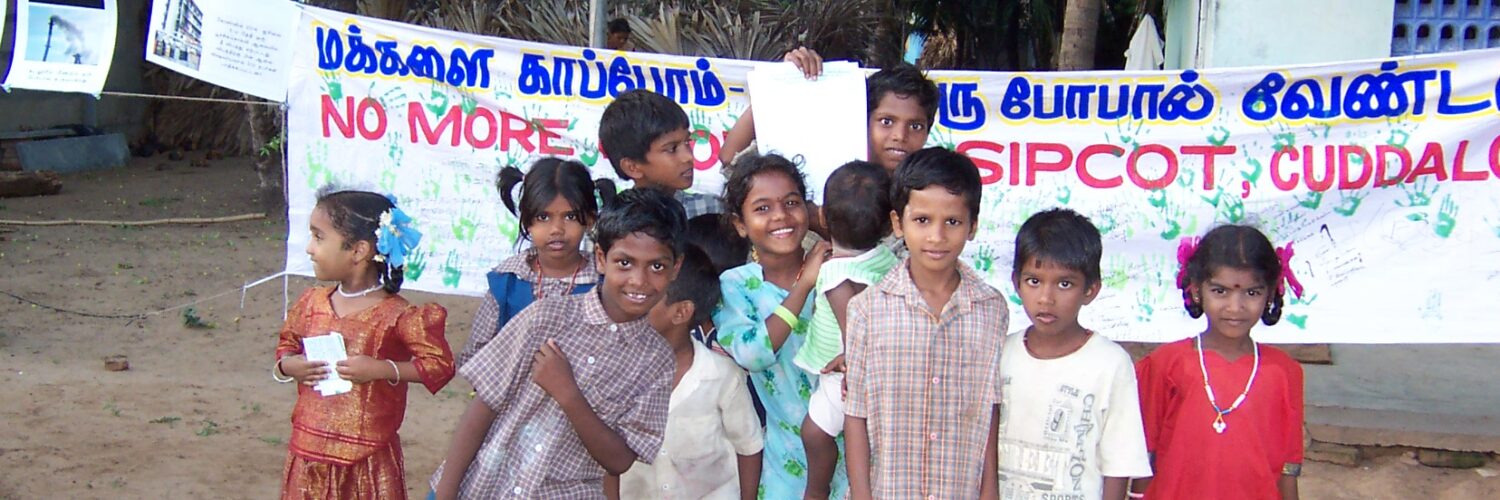PRESS RELEASE
27 August 2015
Click here for Tamil Press Release
Unilever should clean up its mercury contaminated site in Kodaikanal to “a stringent standard at par with ecological sensitivities,” said scientists, including two former Supreme Court Monitoring Committee (SCMC) members Dr. Dilip Boralkar and Dr. Claude Alvares. Releasing a letter written by the duo to the Tamil Nadu Pollution Control Board (TNPCB), Chennai-based Prof. Sultan Ismail and Prof. T. Swaminathan added their voices urging the TNPCB to set clean-up standards at or near naturally occurring background levels of around 0.1 mg/kg. Unilevers current proposal of 20 mg/kg is 200 times more relaxed than what is required for the protection of the watershed forests and the aquatic wildlife within, they said.
On August 10, Unilever submitted a Detailed Project Report for environmental remediation of the site it polluted during 18 years of its thermometer factorys operation. Heeding public demands and bringing its actions in line with SCMCs directions for ensuring public participation, the TNPCB has for the first time in 10 years convened a meeting of a Local Committee on August 28. The DPR will be discussed at the meeting.
“Fixing a clean-up standard for the Kodaikanal site with the aim of protecting future residential users is scientifically untenable. The site is an integral part of the Pambar Shola ecosystem. Soil micro-organisms which keep the shola alive by breaking down leaf litter are highly sensitive to toxins like mercury. Any clean-up should be done to a level that protects the health of this special ecosystem,” said Prof. Sultan Ismail, a soil biologist and former HoD at New Colleges Department of Biotechnology. “Leaving 20 mg of mercury per kg of soil will mean the harm to the forests and wildlife may continue even after clean-up,” he added.
Prof. Swaminathan, a retired chemical engineer from IIT-Madras, said “It is standard practice to ensure that contaminated sites are cleaned up so that mercury does not leach out from the site beyond levels of concern. Because the current proposal does not do that, the release from the site of dangerous levels of mercury through sub-surface and surface water flows into the Vaigai River watershed cannot be ruled out even after clean-up.” Swaminathan warned that this should be a matter of concern for water-users and fish consumers in Madurai, Periakulam, Theni, Dindigul and Palani.
“The Supreme Court has repeatedly insisted that public participation is a must in matters concerning environment and hazardous wastes clean-up,” said Adv. M. Vetriselvan of Poovulagin Nanbargal.
“But in its Project Report, Unilever has claimed that TNPCB, NEERI, ERM Consultants and Unilever are the only stakeholders in this exercise. NEERI and ERM are Unilevers contractors and TNPCB is behaving like one,” he said.
Organised by Tamil Nadu Alliance Against Mercury
c/o 92, 3rd Cross, Thiruvalluvar Nagar, Besant Nagar, Chennai 600 090
For more information, contact:
Nityanand Jayaraman, Chennai Solidarity Group: 9444082401
Adv. Vetriselvan, Poovulagin Nanbargal: 9443416986
Visit:
kodaimercury.org
jhatkaa.org/unilever
